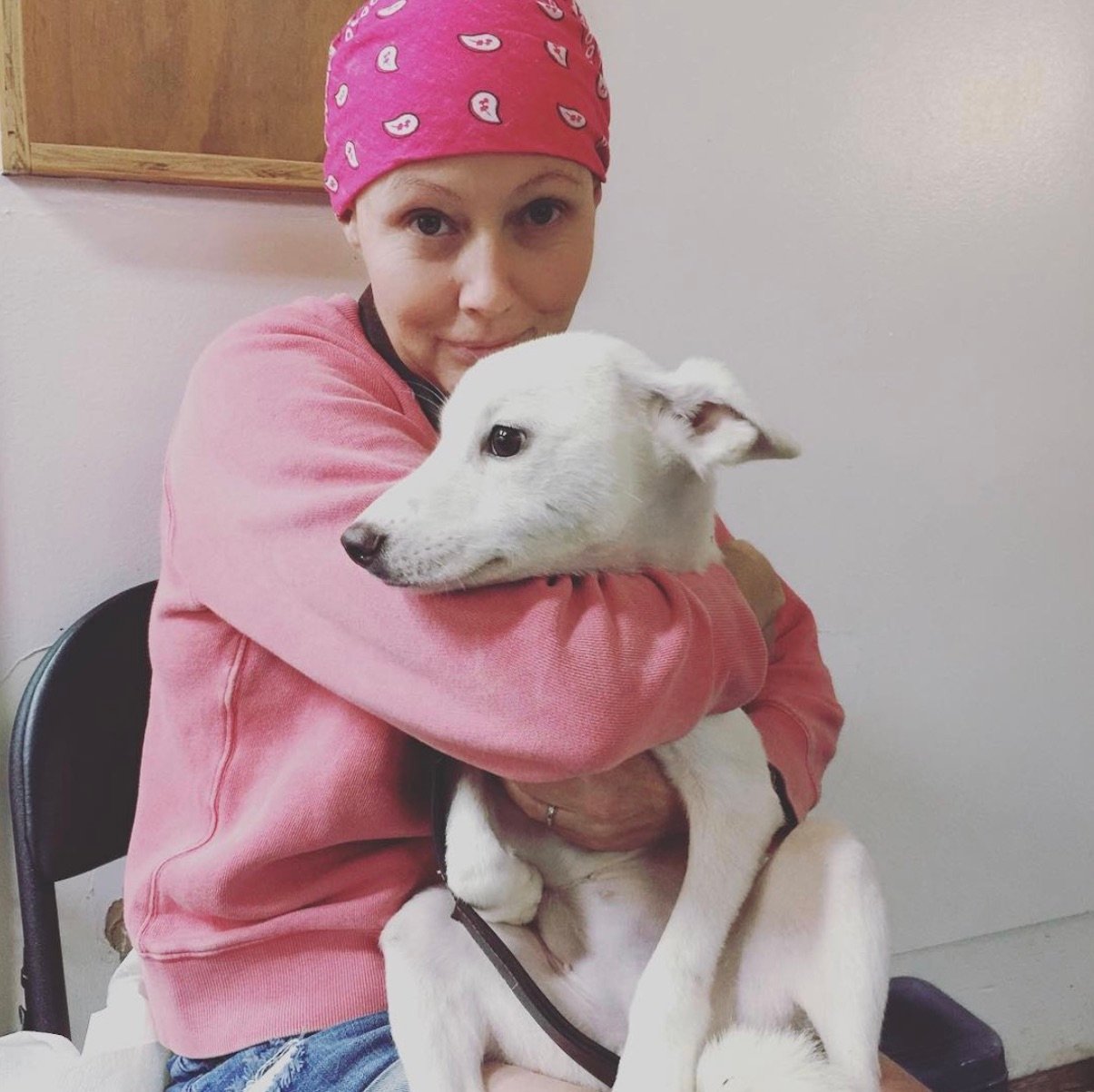Coping With Your Mental Health
- Actress Shannen Doherty, 53, discusses with her oncologist how he emotionally copes while treating patients facing daunting diagnoses. Dr. Lawrence Piro says he tries to give his patients the best care and help them fulfill their treatment journey they want until the very end.
- The Association of American Medical Colleges (AAMC) says the depression rate among medical residents was at “29% while the rate among nonphysicians was 8%.” Mental health treatment among physicians doesn’t always go treated due to shame, fear, and stigma surrounding doctors faced with anxiety or burnout.
- Doherty has lived with breast cancer since 2015. After a brief period of remission, the cancer returned at stage 4, meaning it spread to other parts of her body. She’s undergone various treatments, including brain surgery when the cancer metastasized to her brain.
Actress Shannen Doherty, 53, is battling stage 4 breast cancer, and throughout her journey, she’s had challenging moments and conversations. While speaking with her oncologist, Dr. Lawrence Piro, she turned the tables and asked him how he copes emotionally after treating patients who are fighting for their lives.
“At the end of the day, their outcome is encoded in the universe, and so my job above all else is to make sure they have a journey that’s closest to the journey they want to have,” Dr. Piro explained on Doherty’s “Let’s Be Clear” podcast.

Photo: Instagram/theshando
“I have an obligation to bring the best knowledge, the best-individualized thinking, the best strategic thinking, and all the best resources anywhere in the world to a patient’s journey of healthcare,” Dr. Lawrence Piro explained to Doherty.
Dr. Piro adds that he believes it is his job to help patients live their treatment journey the way they ultimately wish, which “includes the dying process.”
Helping Patients With Mental Health Resources
- Changing the Culture: Medical Professionals Shouldn’t be Ashamed to Seek Mental Health Treatment
- Do You Have a Question About Mental Health & Cancer– Strong In Cancer — A New Column From SurvivorNet with Dr. Marianna Strongin
- Mental Health and Cancer — The Fight, Flight or Freeze Response
- Mental Health: A Guided Breathing Exercise to Help Manage Anxiety
- Mental Health: Coping With Feelings of Anger
- Mental Health and Cancer: New Survey Shows Over a Third of Patients Aren’t Getting the Support They Need
Physicians and Their Mental Health
The Association of American Medical Colleges (AAMC) says the depression rate among medical residents was at “29% while the rate among nonphysicians was 8%” in a report released last year. AAMC also said physicians’ suicide rate is “twice the rate of the general population.”
“Doctors are really good at assessing depression and anxiety in their patients, but seeking out help for themselves has been proven to be very difficult for them, and I think that’s for a variety of reasons,” Dr. Marianna Strongin, a clinical psychologist, tells to SurvivorNet.
Dr. Strongin says physicians face some common roadblocks that get in the way of their ability to seek out mental health treatment. These barriers include:
- Lack of a clear path to seeking treatment
- Failure to realize a need for treatment
- Getting treatment has a stigma attached to it
Dr. Strongin says programs exist specifically for medical professionals who need mental health resources. Physician Support Line is a non-profit organization for physicians and medical students needing mental health help. Caring for Caregivers also helps match doctors with therapists.
Shannen Doherty’s Resilient Journey
Shannen Doherty’s initial breast cancer diagnosis arrived in 2015 after she discovered a lump in her breast. For treatment, she had hormone therapy, a single mastectomy (the removal of all breast tissue from one breast), chemotherapy, and radiation.
In 2017, she achieved remission status, but the disease returned two years later in 2019. This time around, her breast cancer was metastatic, or stage 4.
Having metastatic breast cancer means the cancer has spread, or metastasized, beyond the breasts to other parts of the body. It often spreads to the bones, liver, and lungs but can also spread to places like the brain.
While treating advanced breast cancer, the goal of treatment is to keep you as stable as possible, slow the tumor growth, and improve your quality of life.
WATCH: Aggressive breast cancer in younger women.
As cancer treatments improve year over year, so does the number of people battling this form of cancer that spreads to the brain, says Dr. Michael Lim, who is the Chair of the Department of Neurosurgery and a board-certified neurosurgeon specializing in brain tumors at Stanford Medicine.
According to Dr. Kimberly Hoang, a board-certified neurosurgeon at Emory University School of Medicine, a craniotomy procedure like Doherty underwent earlier this year is “a procedure to cut out a tumor” on the brain that may be particularly useful “if the tumor is causing symptoms or if it’s large.”

Since undergoing brain surgery, Doherty has focused on enjoying precious time with loved ones as she continues battling stage 4 cancer.
Doherty’s cancer then spread, or metastasized, to her brain and then to her bones. As a result, she’s undergone both radiation and surgery in the form of a craniotomy to improve her prognosis.
Learn more about SurvivorNet's rigorous medical review process.

